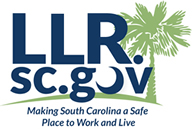Your Western Upstate Association of REALTORS® is actively involved in local government. From counties, to cities, to school boards, to the local utility district, we monitor and advocate for Realtor interests. Our goals:
- Maintain a vibrant and open market for real estate.
- Protect private property rights and ensure fair housing for all
- Provide housing affordability and attainability for our community’s families.
To facilitate this effort, your association has asked a small team of members to guide our advocacy. The Grassroots Government Affairs Team includes a few Realtors who are actively engaged in the association’s advocacy efforts, including supporting RPAC.
The Grassroots Government Affairs Team is guided by our Director of Government Affairs, Michael Dey.
Where we stand
To facilitate our advocacy efforts and to make sure everyone is communicating the same message, your Board of Directors has approved several position papers on various issues that have been debated by our local governments. Below is a summary of each position with a link to the full Statement of Position.
Capital facilities should be funded by the broadest possible funding sources and impact fees should only be considered where there is an obvious nexus between the development and the need for expanded capital facilities. And the impact fee should be proportional to the development’s impact on capital facilities.
Vesting of private property rights, including development rights, is a central tenet of preserving constitutionally guaranteed private property rights. And in today’s climate of aggressive NIMBYism, protecting property owners from punitive or politically motivated changes to ordinances, laws, and even permits, after substantial investment in a development has begun not only makes sense but protects our state’s long-term economic development efforts as well.
We support the enforcement of a draft ordinance, that is legitimately pending and related to a scheme of rezoning, after it has received first reading and scheduled for a public hearing. However, we oppose the use of the Pending Ordinance Doctrine for a moratorium.
A sign ordinance should be drawn cautiously, so as not to prevent the use of signs, especially small temporary commercial signs like real estate signs. All forms of signage should be accommodated, with ordinances addressing issues like obstruction of view of motorists, reasonable size limitations, and reasonable limits of quantity per business or property.
We are neutral on zoning. We simply ask for clarity on the rules for development and land use. However, if local a government desires to regulate density and intensity of land uses, it should zone the areas they want to regulate.
Short-term rentals are a legitimate business that should be accommodated. In traditional residential areas, appropriate zoning tools may be required to maintain the residential character of the area. In transitional areas between commercial and residential areas, short-term rentals are a great buffer between what is otherwise conflicting land uses. In areas that attract visitors, like our lakes and mountains, short-term rentals are important to our community’s hospitality industry. All relevant lodging rules, like business licenses and occupancy taxes, should be paid.
The Western Upstate Association of REALTORS® believes annexation should be 100% voluntary on the part of the property owner of record. If the property owner and the city agree to the annexation, there is no reason for a neighboring property owner, or the county, to have a voice in that decision.



